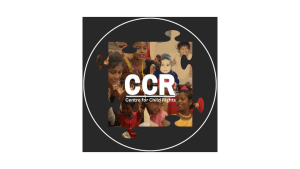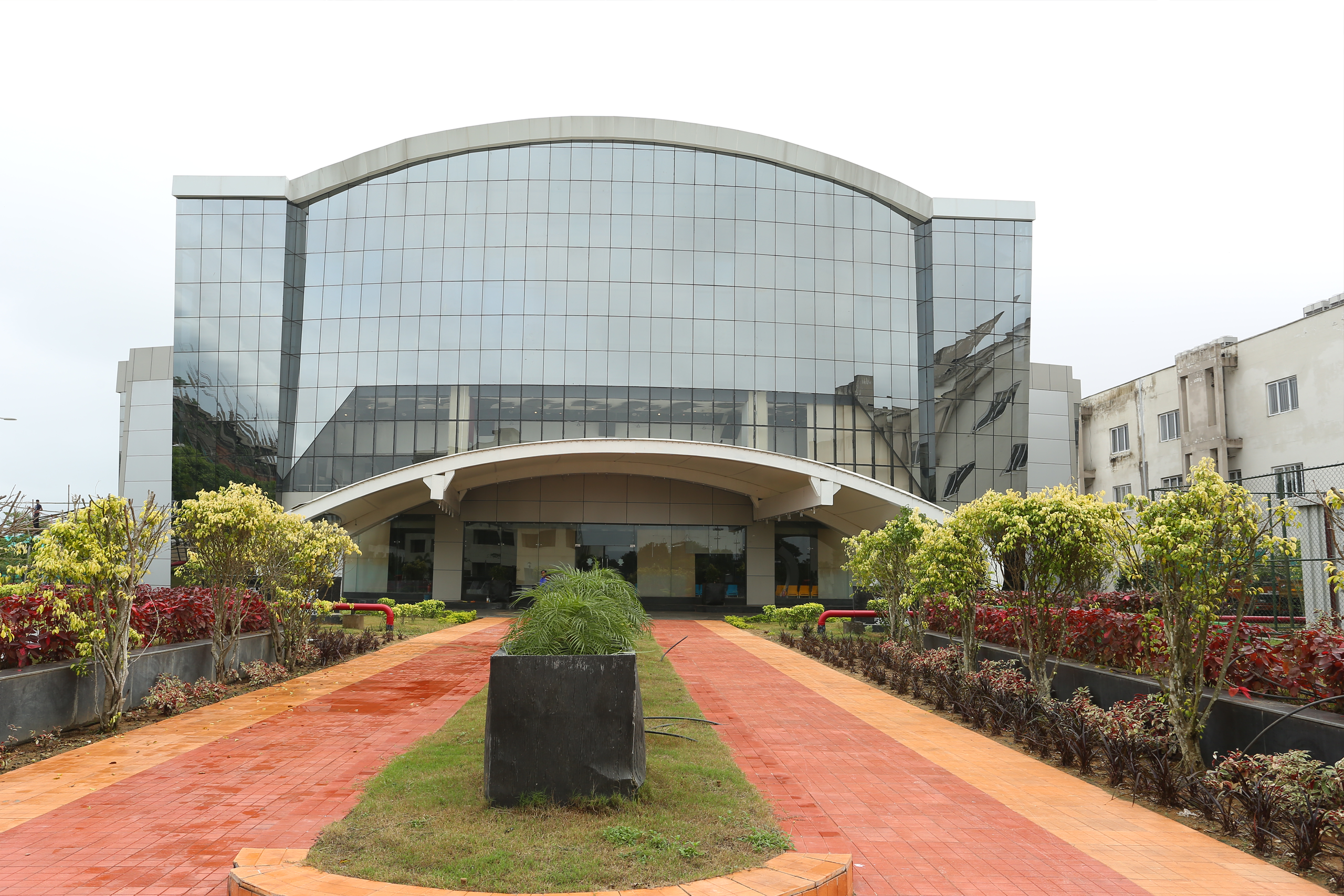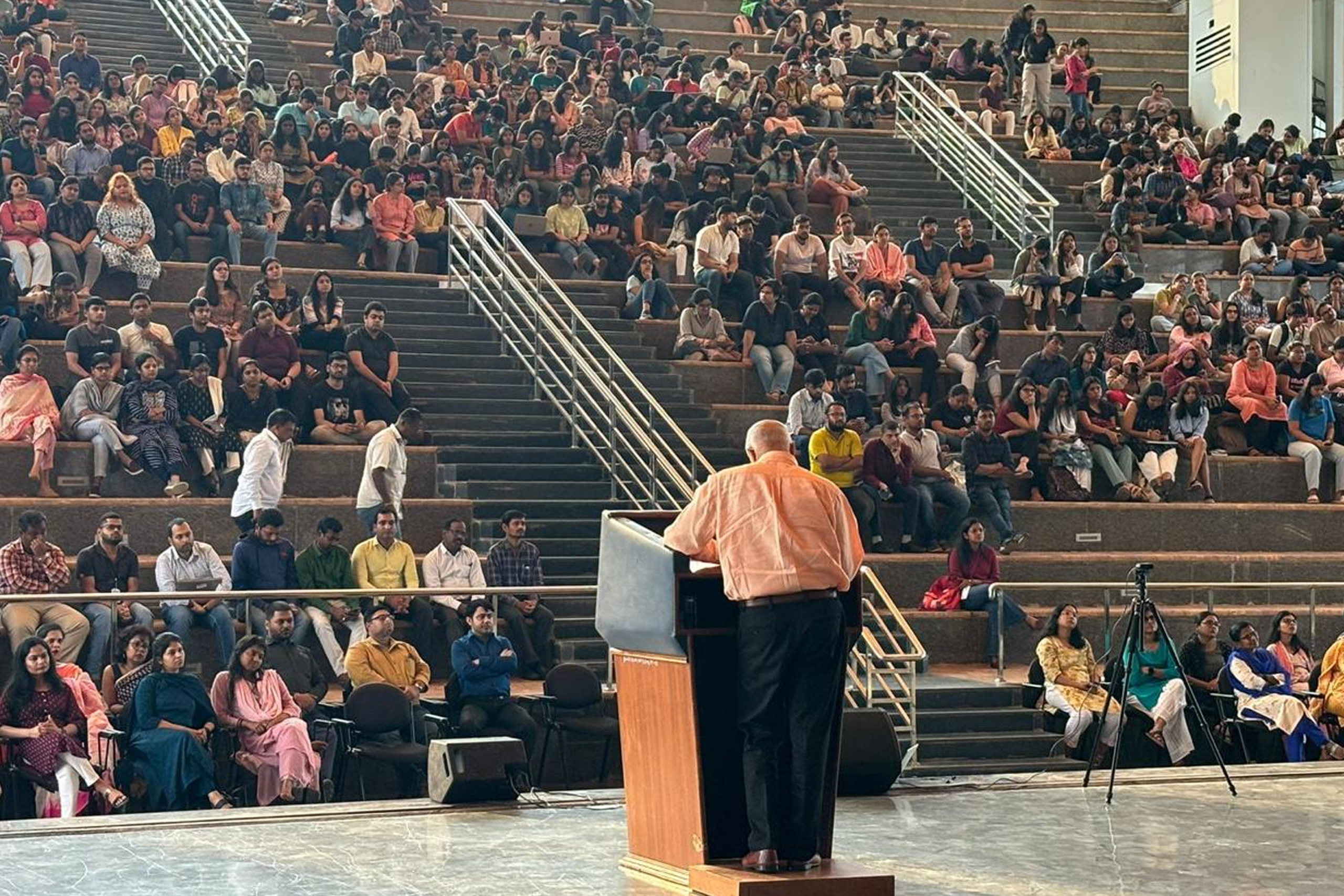RESEARCH AND PUBLICATIONS
Media Scan Research on Children in News Poster Panels :
This is the first ever research done by any law school on media coverage of issues concerning children in India and the world. Three legacy news brands, the Indian Express, The Hindu and The Times of India have been analysed on their content and coverage of children in news for the month of November 2023, using the lens of the UNICEF Press-Wise Media Manual and the guidelines issued in the A.K. Asthana vs Union of India judgement of 2012 (WP 787/2012). This research has been conceptualised by Prof Ved Kumari and Prof Biraj Swain. The faculty guides are Prof Biraj Swain and Durbadala Mantry and conducted by student-authors Anuj Kulhar, Avismrita Shyamali Rai, Ishaan Aryan and Suraj Mishra.
Media Scan Research Poster
The Kaleidoscope of Children: Issues through the Lens of the Youth
is a project born in the classroom. It makes students delve deep into the pictures of children, sense their life situations, draw upon the students’ own vantage, their empathy and further construct the violations the photographed children are experiencing. In the next step, the students build on legal recourse to challenge those deprivations. It is about discovering the human being before tapping into the lawyer in the NLUO students and building on solidarity and fraternity, core principles enshrined in the Indian constitution.
Kaleidoscope of Children – Digital
Working of Juvenile Justice System in Odisha:
The Centre for Child Rights undertook a research to study the status of implementation of the Juvenile Justice (Care and Protection of Children) Act 2000 in Odisha with support of UNICEF under the project on ‘Effective Implementation of Children’s Laws in Odisha’. The study aimed to make rapid assessment of the implementation of Juvenile Justice (Care and Protection of Children) Act, 2000 in Odisha to get first hand insights about the operational structure of juvenile justice mechanisms; infrastructural facilities available at the juvenile justice institutions; quality of service delivery; convergence and coordination between juvenile justice institutions and allied system; and monitoring of the system. Survey was made in the districts of Balasore, Bhadrak, Ganjam, Jagatsinghpur, Khordha, Mayurbhanj and Puri of Odisha. Data was collected from Juvenile Justice Board, Child Welfare Committee, Special Juvenile Police Unit, Children Home, District Legal Services Authority of the above-mentioned districts by using structured questionnaire and interview schedules.The study recommended for separating JJB from court premises, improved infrastructure for JJB, CWC and CCIs, providing contingency funds to SJPUs and CWCs, filling up the vacancies in the DCPUs, inter-departmental convergence at the district and block level, strengthening of accountability, capacity building of stakeholders, and developing robust data base of children of vulnerable communities.
Working-of-Juvenile-Justice- System- in-Odisha
Effective Disposal of Cases in Juvenile Justice Boards of Odisha:
The research to study the pendency of juvenile cases in Odisha has been undertaken by the Centre for Child Rights, NLUO with the support of UNICEF, Bhubaneswar under the project on Effective Implementation of Children’s Laws in Odisha. The background idea of this study is that the policy paper prepared by the Centre for Child Rights on the ‘Working of Juvenile Justice System in Odisha’ in 2016 highlighted the functional deficiencies of the Juvenile Justice Boards with regard to case disposal and recommended for a study on pendency status in all JJ Boards of Odisha. As the pendency is the outcome of slow disposition or increasing case load, therefore this study has been commissioned with the title of ‘Effective Disposal of Cases in Juvenile Justice Boards of Odisha’.The key objective of the study was get insight about registration, disposal and pendency of cases across all the JJ Boards in Odisha and to identify the challenges that hinders to effective pendency management. Specifically the study aimed to bring out district fact sheet on the pendency status in JJ Boards. The report is based on the review of statue and case law on juvenile justice, secondary information and the primary data collected from the JJ Boards in all thirty districts of Odisha by using structured survey schedule. Views and opinions of the Principal Magistrates of JJ Boards with regard to case pendency and reasons thereto were collected through personal interaction.The report highlights reporting, disposal and pendency of cases and analyses the duration of pendency, nature of pendency, and reasons of pendency. The study recommends for additional JJBs in high case load districts, a judicial magistrate exclusively for JJB, dedicated personnel to work exclusively in the Special Juvenile Police Units, regular training, improved knowledge and skills among human resources of the child protection structures, improved infrastructure with child-friendly mechanisms.
Effective Disposal of cases in JJBs of Odisha
Practice of Preliminary Assessment under Juvenile Justice (Care and Protection of Children Act) 2015:
The research to study practice of preliminary assessment by the JJ Boards in Odisha was undertaken with the support of UNICEF, Bhubaneswar under the project ‘Effective Implementation of Children’s Laws in Odisha’. The study aimed to ascertain the procedures and methods being administered by JJ Boards for preliminary assessment and to identify the issues and challenges to this assessment. Primary data has been collected from the JJ Boards of ten districts of Odisha sampled for the study. They are Balasore, Bargarh, Cuttack, Ganjam, Jharsuguda, Koraput, Nabarangpur, Phulbani, Puri and Sundargarh. The study provides the quantitative and qualitative analysis to on the practice of preliminary assessment with regard to age determination, determining heinous offence, criteria of preliminary assessment, determining factors of preliminary assessment feasibility of conducting preliminary assessment by Board without assistance of experts, availability of psychologists, psychosocial workers or other experts. The study has made recommendation for SOP on preliminary assessment, development of comprehensive tools, establishing legal aid clinics and child guidance center involving of clinical psychologist at the observation homes, and the certificate training course for stakeholders involved in preliminary assessment.
Practice of Prelimnary Assesment
Exploring Changing Dynamics of Children’s Laws in India in Post-Liberalization Era:
The research on ‘Exploring Changing Dynamicsof Children’s Laws in India in Post-Liberalization Era’ was undertaken with the support of Indian Council for Social Science Research (ICSSR), New Delhi. The background for doing this research is that the post-liberalisation era has witnessed many measures towards the protection and respect for the rights of children in terms of the laws (legislature); policies and schemes (executive); as well as judgments of the courts (judiciary). This research was undertaken with objective to understand the changing perception of law, legal system and justice institutions, and document trend of child rights practices in the post-liberalization era with a view to identify the pattern of changes, both negative and positive, in the life situation of India’s children.
The research undertook field study in six districts of the state of Odisha namely Cuttack, Puri, Ganjam, Koraput, Keonjhar and Sundergarh. The study collected empirical evidence through field study to ascertain gaps between macro level policy and practices in child-centric programmes. The study included a desk review of the laws and policies, particularly focusing on the post-liberalisation developments, along with reviewing the existing research documents and available literature on child rights in India. The study sourced secondary information from published as well as unpublished reports of government, research institutions and non-governmental organizations. In order to understand the approach of judiciary towards the child rights in the post-liberalisation period, judgments, mainly of the Supreme Court of India and of some other High Courts have been analysed.
Focus Group Discussions were held with the District Education Officers to obtain qualitative information on the status, issues and challenges of the right to education. The primary data were collected through observations and personal interaction with the respondents in the form of informal interviews. Semi-structured interview schedule was used for collecting information from the “children’s courts”, “juvenile justice boards”, “child welfare committees”, “special juvenile police units.”
The study involved research on the developments in the post-liberalisation period in four thematic areas, namely, Juvenile Justice; Child Sexual Abuse; Child Labour; and Right to Education. Each of the themes have been presented in separate chapters. Apart from the four thematic chapters, the report also contains separate chapter on Introduction, Law and Justice for Children in India and Conclusion.
Exploring Changing Dynamics of Children’s Laws in India in Post-Liberalization era
Social Mapping of Migrant Workers of Odisha:
NLUO has undertaken a study on Social Mapping Migrant Workers in Odisha with the support of the Labour Department, Government of Odisha. The study was commissioned through the Centre for Child Rights in consultation with the Labour Commission, Government of Odisha. The research methods followed in the study include primary data collection through household survey of the migrant families, focus group discussion with the representatives of gram panchayats through interview schedule, secondary data analysis and review of law, policy and literature on the corresponding issues of labour migration. The key objective of the study is to understand, document and analyse the context, practice and challenges of labour migration in Odisha. The household survey was made in 90 Gram Panchayats across five Blocks of Odisha State. Among them, four Blocks namely Bongomunda, Muribahal, Saintala and Turekela were from Balangir district and another was Sinapali Block in the district of Nuapada. The survey covered a total of 7648 households and 31,347 persons. The study recommended for national labor migration policy, robust data base of the migrants, research and evaluative studies, promotion of apprenticeship, vocational training, and internship and income generation activities for rural youths, sensitization of vulnerable communities, migration registration, skill linkage, and social protection through food, health and economic securities.
Social Maping of Migrant Workers of Odisha
Centre for Child Rights, NLUO submitted comments to the National Commission for Protection of Child Rights on “Draft Guidelines for conducting Preliminary Assessment under Section 15 of the Juvenile Justice Act, 2015” ( 18th January, 2023)






